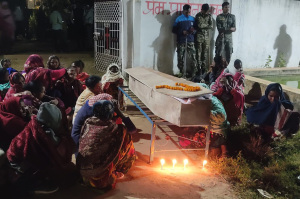Seminary Enrollment in Divinity Programs on the Rise
Over the course of a few months, divinity programs throughout the nation have reported seeing an unprecedented rise in the number of seminary students. Analysts nationwide are debate over reasons to the recent rises in attendance
According to sources from the Moravian Theological Seminary in Bethlehem, Philadelphia, the school has seen a remarkable increase in the number of seminary student enrolled into its divinity programs. This phenomenon has not been limited in Bethlehem, but seems to be present in places such as the Ashland Theological Seminary, the Evangelical Lutheran Church of American seminaries, Duke Divinity School, and the Yale Divinity School.
According to John Spangler of the Lutheran Theological Seminary at Gettysburg, divinity school enrollments have risen from a mere 200 in 1999 to 300 by 2004. At Moravian, the number of seminary students in the divinity program is up 114 – a sharp contrast from the 94 students of 2000. Surprisingly about half of the 114 are full-time students while the majority of the class of 1994 comprised of part time students.
Even more surprising is the rise in young women having interests in attending seminary.
According to Nancy Merrill of the Association of Theological Schools, results from a nationwide census reveal that there were no less than 11,063 women attending seminary in 2003 – a sharp increase from 9,691 of 1999. Merrill credits the efforts of seminaries and denominations to recruit young students as being the most likely cause of this increase.
“We are moving into a period in U.S. history where there is a broad awakening to and re-evaluation of the involvement of faith in public life,” Serene Jones, a theology professor at Yale Divinity School said to Associated Press affiliates.
So far, most analysts have remained divided over the exact reason why many young adults are considering an alternative career path where financial gains are rather limited. In fact, most analysts in the field agree that most graduates in seminary will more likely serve as part-time ministers given that many smaller churches in the nation simply cannot afford full-time ministers. In addition, denominational rifts in the past decades have caused many smaller churches to consider cost-effective means for hiring ministers.
Nonetheless, these issues do not seem to deter the young aspiring-ministers from entering seminary. In deed, some analysts point out that the demand for more ministers has played a major part in attracting young adults into the possibility of leading careers of ministering.
In the last decades, many smaller, localized churches have seen a cycle of retirements. In this period, the majority of the ministers at localized churches tended to be older males seeking second career choices. This, in turn, caused a dramatic shortage in ministers as these older men sought retirement.
Still, others have cited the recent focus on religion as being the catalysts for the recent wave of seminary enrollments.
John Spangler, spokesman for the Lutheran Theological Seminary at Gettysburg said to the Associated Press affiliates, “In a time of post-Sept. 11, 2001, younger people are thinking more in terms of purpose than pay. In times of economic decline, when people have jobs that are not going so well and they don't know if the job is going to be there, people are more inclined to make the jump and do this.”
Still others have concluded that no real explanation can be given to the rising enrollment. “It's a very mixed picture,” said the Rev. Craig Settlage, an associate director at the Evangelical Lutheran Church of America. “The situation is very fluid.”
Nonetheless, top religious leaders find common ground in the notion that the current rise is a godsend.
Addressing these increases, the United States Bureau of Labor Statistics has gone as far as predicting that in eight years, the clergy will have the fourth largest rate of new occupational openings that require a professional degree.





























